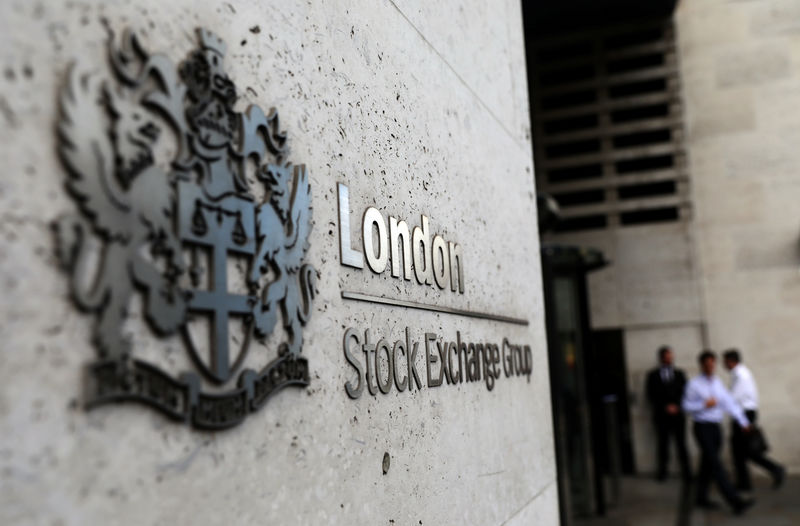By Helen Reid
LONDON (Reuters) - Oil majors dragged Britain's top share index down on Monday as political risk gripped Europe and caution set in again on Brexit, weighing on sterling.
The FTSE 100 (FTSE) fell 1.2 percent to its lowest close since April. Stocks across Europe also fell led by Italy's FTSE MIB after stern words from the European Union on Rome's budget plans sent bond yields to new highs.
Oil majors BP (L:BP) and Royal Dutch Shell (L:RDSa) dropped along with crude prices after Washington said it may grant waivers to sanctions against Iran's oil exports next month. Shell fell 0.8 percent and BP 2 percent.
Vodafone (L:VOD) fell 3.5 percent after Jefferies downgraded the stock to hold from buy, saying its dividend policy was too generous for the phone group's operating prospects.
"The need to focus on debt reduction means that even a large DPS (dividend per share) cut will not free up resources to invest more into projects that might enhance earnings growth organically," said analysts at Jefferies.
Schroders (L:SDR) rose as much as 2.3 percent after the asset manager said it was in talks with Lloyds (L:LLOY) to work together in the wealth sector.
"We think this move makes good sense for both parties – Lloyds gets access to Schroders's investment management capabilities while Schroders gets access to Lloyds distribution," wrote Bernstein analysts.
Schroders shares later succumbed to the broader market decline, ending down 0.7 percent, while Lloyds fell 1.3 percent.
Tesco (L:TSCO) shares fell 2.2 percent after broker Kepler Cheuvreux cut its target price on the stock to 232p from 261p.
Overall, the FTSE 100 has held up relatively well compared with its European peers in the past weeks. Brexit negotiations are weighing on the pound, which usually helps the exporter-heavy index.
On Monday, sterling fell as traders reassessed the chances of a breakthrough in Brexit negotiations after negative weekend media reports.
Goldman Sachs (NYSE:GS) analysts said international UK stocks should be relatively insulated from Brexit risks because they are less exposed to domestic economic weakness and benefit when sterling falls.
"We find that insulation still exists: the correlation remains negative, although less so than at the beginning of the year," said analysts at the U.S. bank.
Analysts overall have cut their estimates for FTSE 100 earnings as the support from sterling fades.
Lancashire (L:LRE) shares fell 5.9 percent to the bottom of the FTSE 250 after the property and casualty insurer forecast catastrophe losses of $25 million to $45 million from recent hurricanes, resulting in a negative return on equity in the third quarter.
Countrywide (L:CWD) rose 4.1 percent to the top of the small-caps index after Peel Hunt reinstated its rating on the stock at "hold".

"With a new, simplified strategy to rebuild profitability and a recapitalised balance sheet, Countrywide is on a firmer footing than it has been for some time," wrote Peel Hunt analysts.